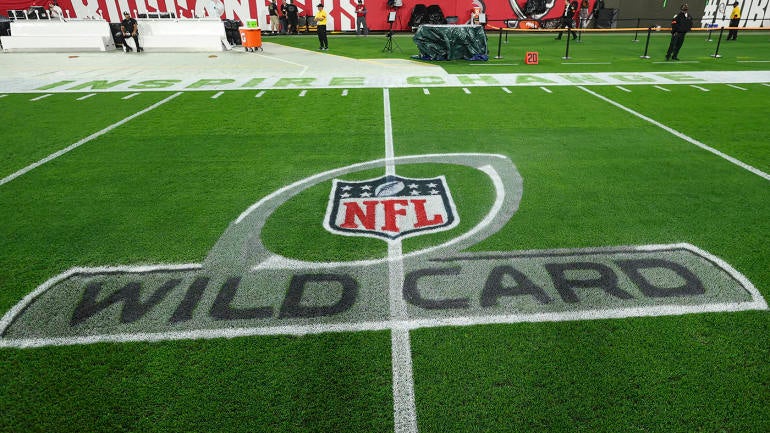
This weekend, three teams with better records than their playoff opponent will hit the road in the wild-card round. That is nothing new, as the league's playoff seeding has always rewarded division winners with a home game.
But, like many years in the past, the league will again review its playoff seeding format this offseason, sources tell CBS Sports. NFL team owners have long preferred the current format, but there could be an appetite for change that would reward a team with a better record a home playoff game.
The 11-6 Chargers face the 10-7 Texans on Saturday in Houston. Sunday night, the 12-5 Commanders will play in Tampa Bay against the 10-7 Buccaneers. And Monday night, the 14-3 Vikings will be the road team in Arizona against a 10-7 Rams team that unfortunately lost its home field due to the L.A. wildfires.
Any changes to the format would have to be voted on and approved by three-fourths of NFL team owners, a tall task for any potential change each year. Sources say the NFL's competition committee will review any proposals for reseeding, from the complex like the Chargers proposed in 2023, to the simple -- like simply seeding teams based on win percentage.
Two years ago, the Chargers proposed that a wild-card team with four or more wins than a division champion with a losing record should host the wild-card game. That proposal went nowhere following the 8-9 Buccaneers hosting the 12-5 Cowboys that season.
Part of the reason there has been no change is that NFL team owners enjoy the one-in-four chance of hosting at least one playoff game each year. That's extra revenue for the team and, of course, the benefit of home-field advantage in the postseason for their team.
But simply reseeding the playoffs in order of win percentage gives team owners the exact same chances of hosting a playoff game. If one out of four in the division will host a playoff game, four teams out of 16 in the conference will also host a playoff game.
Instead of the Lions, Eagles, Buccaneers and Rams earning home-field advantage in their first game of the postseason for example, seeding teams by win percentage would give the Lions, Eagles, Vikings and Commanders home games.
It is seemingly an annual debate that has been ongoing for decades. In 2008, a reseeding proposal "went down in flames," according to Giants co-owner John Mara, and the proposal got tabled without even being voted upon.
"The focus I said to the competition committee is what are the alternatives we have to make sure every game is as competitive as possible," NFL commissioner Roger Goodell said at the time. "I think the debate was good."
Nearly 17 years later, the NFL is still battling to have as many competitive games as possible. The league limped to the finish this year, seeing several non-competitive games in the final two weeks of the season. Several playoff-bound teams rested their starters and starting quarterbacks with the playoffs already clinched.
But in a reseeding scenario, a team like the Eagles could be playing for the two or three seed if the loser of the Vikings-Lions game was competing for a home game. Perhaps the Rams wouldn't have rested Matthew Stafford in Week 18 if they weren't already guaranteed a home playoff game.
The final weeks of the NFL's regular season are typically marked with questions around tanking for several teams. Promoting competition among all teams in late December and early January is what the NFL wants to do, and a new seeding order could help those efforts.
And the league believes great competition and close games bring eyeballs. While the NFL continues to dominate television ratings, those ratings reportedly took a hit this season. Front Office Sports reported this week they were down 2.2% from a year ago. No one at the NFL ever wants to see that.
How this postseason plays out could determine whether there's real interest in changing the initial seeding in the NFL playoffs. Until then, in the vein of Schoolhouse Rock!, any proposal would be "just a bill."

















